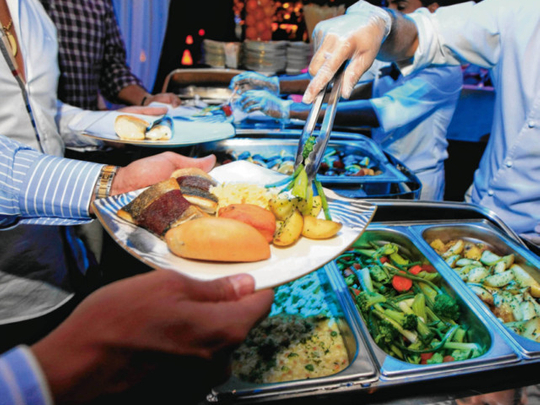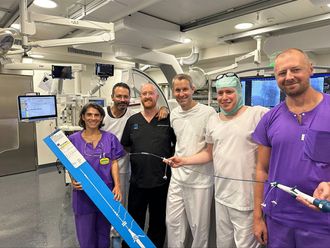
Dubai: Mindful eating during Eid Al Fitr is encouraged by doctors, who have cautioned that the risk of overindulgence after a 30-day fasting timetable can lead to health complications.
The most common complaint during or after Eid is related to digestive disorders, said Dr. Chawki Ghamlouche, primary care physician, internal medicine at Dr Sulaiman Al Habib Medical Centre, Dubai Healthcare City (DHCC).
For the past 13 years that he has been practising in the emirate, he said he has witnessed an increase in the number of patients complaining of symptoms related to poor digestion during the celebratory period.
Speaking to Gulf News, he said, “The usual symptoms include bloated stomach, abdominal pain, indigestion, and constipation. Patients can suffer from gastritis [inflammation of the stomach lining], and IBS or irritable bowel syndrome [related to a disruption in digestion, trigged by processed snacks, and fatty, fried food among others].”
Overindulgence of high- fat and -sugar foods isn’t healthy in a normal person, and can be fatal for those with underlying medical conditions, explained Dr Ghamlouche. “In an overweight or obese person, or those with chronic conditions like diabetes and hypertension, the overload of high calorie food can lead to serious health complications.”
Dr Nael Sahhar, head of internal medicine at Oasis Hospital, Al Ain, warned about the risks of overeating, stressing the need to give the body time to readjust to normal eating patterns. While overeating is common and for many, difficult to avoid, residents need to realise that the body struggles to digest the food properly.
He explained further, “The body is accustomed to a different routine during the month of fasting. It is important to give your body time to readjust to the pre-Ramadan diet. Filling your stomach with large quantities of high calorie food over a short period of time can lead to digestive problems.”
Dr Sahhar advised residents to choose their meals carefully, and to ensure they chew food properly.
Stressing on the need to re-educate the taste buds, Dr Waffa Al Bassam Dubai-based clinical dietician, health coach and diabetes educator, said, residents need to approach the feasting phase with moderation.
She said “The body is used to limited number of meals and different sleep and exercise routines during Ramadan. So diet, sleep and exercise — all these factors will undergo a change after Ramadan. Residents should gradually get back into a normal regimen.”
In terms of diet, small and frequent balanced meals are advised with increased emphasis on fruit. Dr Waffa added, “If preparing traditional Eid sweets, opt for Canola oil instead of butter or ghee [clarified butter]. When consuming these sweets, limit the quantity.”












